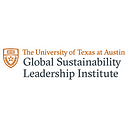The Confluence of Impact and Consulting
By Sarang Murthy, Fall 2019 LIFT Fellow & Graduate Economics Student
The leveraging of practical economics and traditional & non-traditional business strategy marked the Longhorn Impact Fellowship’s inaugural year. The Social Innovation Initiative, a relatively new but increasingly visible arm of Texas’ McCombs, spearheaded by Dr. Meeta Kothare has a broad coalition of support from the administration, faculty, and students. The Longhorn Impact Fellowship at Texas McCombs, also called LIFT, invited interdisciplinary graduate and undergraduate students to participate in social and environmental sustainability consulting engagements. These projects were set up to help five startups with focuses ranging from ecological education and micro-finance, to human capital accessibility and youth advocacy.
I had the privilege of working with Jump Finance, a startup that, in brief, is looking at ways of harnessing technology to offer debt in the $1000 range to college students in West Africa (and later in all of Africa and then beyond). John William, the brain behind Jump Finance, was inspired during his time in the Peace Corps; in Peru, he saw first-hand the inability for otherwise motivated and talented students to complete their post-secondary education simply because of financial constraints. He sought to create avenues for access to capital for young people.
Jump Finance uses a series of psychometric tests and other demographic signals, delivered on a mobile friendly webpage, to identify students who would most likely benefit from the loans. Micro-loans in other contexts (the Grameen Bank loan scheme, for example) have shown to have had repayment rates of close to 96%. We learned that although the margins here are slender, the measures of success for Jump Finance were far more than a bulging bottom line; the success would be measured by the effectiveness of disseminating human capital in the form of higher education. It was truly wonderful playing a role towards one day creating that end.
It is common knowledge, especially amongst developmental economists and education policy practitioners, that human capital accumulation is one of the most tangible and lasting means to increase employment outcomes, and in turn to increase wealth generation and accumulation. In other words, the alleviation of poverty is directly correlated to human capital accumulation, most commonly, educational attainment. This idea was popularized by the renowned Economist Gary Becker. He led from frameworks postulated by early economic philosophers such as Adam Smith and Karl Marx to propose the first works in a more formal model that came to be known as Human Capital Theory.
At the risk of verging on the pedantic: recent work by Esther Dufflo and Abijeeth Banerjee in the field of experimental economics won them the highest accolade in Economic study and research, the Sveriges Riksbank Prize in Economic Sciences in Memory of Alfred Nobel (colloquially called the Nobel Prize in Economics). In essence, their work on the alleviation of global poverty and the very nature of Jump Finance’s mission are faces of the same coin; the Nobel laureates used innovative and bias free methods of, among other things, increasing caloric intake in poor countries. They were motivated by the same “social good” that Jump Finance hopes to create by harnessing technology and the internet to generate greater educational outcomes.
We are at a pivotal crossroads. With the exponential growth in access to information via the internet, and the velocity of the creation of wealth happening more rapidly than ever before, it is imperative for our priorities to realign. Increasing access to education, reducing pollution, redistributing wealth, and taking on other sustainable ventures is key. It is time for businesses of all kinds to embody the SII’s motto of Where Profit Meets Purpose in their market-place interactions. Texas McCombs, via LIFT, is finding itself ahead of the curve be it by incubation, mentorship, or financial capital.
Hook ’em Horns!
